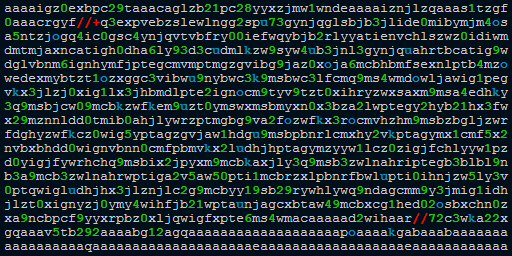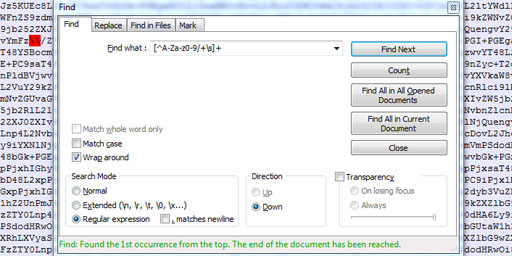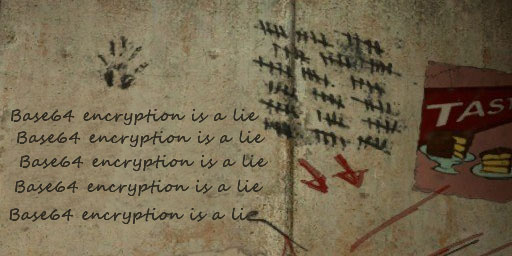PHP Base64 Decode
To convert Base64 to original data, PHP provides the base64_decode function. In PHP Base64 values are obtained using the base64_encode function. Decoding data is a fairly simple and fast process, but you need to be aware about some pitfalls. Speaking of pitfalls, first of all I mean the necessity to check boolean FALSE and enable $strict mode for unknown data.
Usage:
base64_decode($data)- Strips invalid characters from$data, then decodes it and returns value asSTRINGbase64_decode($data, true)- Enables$strictmode and returnsSTRINGif$datacontains only Base64 characters
Arguments:
$data(required string) - The Base64 value you want to decode$strict(optional boolean; defaultFALSE) - SpecifyTRUEto accept only valid Base64 characters
Return Values:
STRING- On success, it returns the original data (it can be either text or binary)FALSE- If a failure occurs (if cannot decode$data), it returns booleanFALSE
Supported Versions:
- PHP 4
- PHP 5
- PHP 7
Changelog:
- PHP 5.2 adds
$strictmode
Example #1 (print the result):
<?php
$b64 = 'Z3VydQ==';
echo base64_decode($b64); //-> "guru"Example #2 (store the result in a variable and check for errors):
<?php
$b64 = 'SGVsbG8gV29ybGQhIQ==';
$str = base64_decode($b64);
if ($str === false) {
echo 'Invalid input';
} else {
echo $str; //-> "Hello World!!"
}Example #3 (invalid type of $data triggers E_WARNING “base64_decode() expects parameter 1 to be string, array given”):
<?php
echo base64_encode([]); //-> FALSEExample #4 (the differences between the default mode and $strict mode):
<?php
echo base64_decode('What?!'); //-> "Z�"
echo base64_decode('What?!', true); //-> FALSEFor more info, check the following examples:
 What is "aaaaigz0...my4xmda="?
What is "aaaaigz0...my4xmda="? Validate Base64 using Notepad++
Validate Base64 using Notepad++ Base64 encryption is a lie
Base64 encryption is a lie
Comments (17)
I hope you enjoy this discussion. In any case, I ask you to join it.